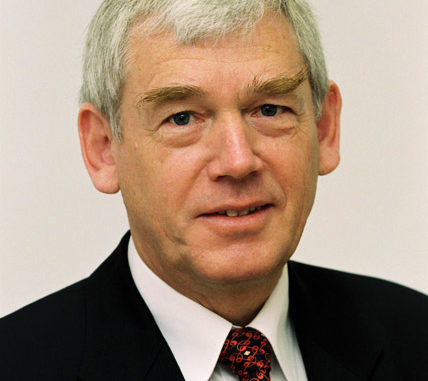
Umma Party memorandum To Mr. P. Nilson
Umma Party (UP) strategy is to achieve a comprehensive political solution i.e. a solution that addresses the root causes of the national crisis and engages all parties to conflict without exclusion.
The current regime adopted an exclusive attitude and used violence to impose its polices and to intimidate its opponents. In its first years no room was left for political peaceful opposition, and this was why UP shifted to military struggle.
When the regime began to retreat and changed its exclusive policies under various forms of pressures and for certain internal calculations, the UP welcomed that attitude and highly encouraged it.
Following the ”Nation Call” agreement, the UP abandoned the military resistance and turned back to the civil political struggle. The vulnerability and fragility of the country, the attainment of a national consensus upon the basis and terms of the comprehensive political solution, the margin of freedom, were the main factors behind the UP change of tactics.
The party launched a political dialogue with the regime in order to reach a comprehensive political solution to realize just peace and democracy.
The regime seemed to be unprepared for a genuine transformation. It spent the time in procrastination, so it was impossible for such negotiations to make a breakthrough. (You will find some of the violations committed by the regime against Umma Party elsewhere.)
UP worked diligently to achieve a comprehensive political solution (CPS) through its open channels with all Sudanese political forces and with the regional and international actors.
UP supported the regional initiatives and suggested certain procedures to fill the gaps and to correct the drawbacks and imbalances. It encouraged all the internal initiatives in the same sense.
When the two armed conflicting parties, the Government of Sudan (GOS) and Sudan Liberation Movement/Army (SPLM/A) reached an agreement at Machakos, Kenya last July, UP immediately and enthusiastically supported that agreement and led the Sudanese public opinion on that way.
UP issued “ Strategic Paper” to help the negotiations and the attainment of national consensus about the disputed issues.
When the GOS withdrew from the negotiation table after the capture of Touret by the SPLA, UP gathered the political forces in its Headquarters to make an appeal for the GOS to resume the negotiations.
UP welcomed the results of the second round of talks and made a political analysis and concluded that there are three categories that need to be addressed in the agreement:
- ¨ Issues were agreed upon but in broad lines and with generalization. These issues need to be detailed and specified.
- ¨ Issues of controversy and disagreement between the two parties, the UP suggested compromise solutions.
- ¨ Important omitted issues that need to be addressed.
On December 2002, UP presented an initiative, The National Convention (NC), to the political parties, trade unions, civil society organizations and the National figures.
Hereinafter is a summary of the NC
A summary of The Nation Initiative for National Contract (NC)
The NC is aiming to achieve the following:
- 1) Reconciliation between National unity and Religious Rights.
- 2) The fair distribution of wealth revenues, correction of developmental imbalances and the achievement of social justice.
- 3) A democratic balanced decentralized system of governance at all levels.
- 4) Elimination and correction of developmental, administrative and cultural grievances of the disputed marginalized areas. Their freely elected representatives should determine the future of these areas.
- 5) Guarantee the Human Rights preservation.
- 6) A transitional period based on consent in the first third and free and fair election after that.
- 7) Free and fair election.
- 8) Drafting a constitution for the democratic civil decentralized state, a constitution that represents the will of the Sudanese people and will be ratified by the elected parliament.
- 9) Strong security forces to take care of citizens and the national state.
- 10) Confession of the past mistakes and injustice and apology for that to purify the political life. The need for accountability accompanied by encouraging the values of reconciliation and forgiveness.
- 11) To change the current bilateral agreement into national abiding agreement.
- 12) To ensure a suitable representation for SPLM/A in the central government whatever the results of the election, and to avoid the exclusive attitudes.
- 13) To ensure the ruling party and to encourage forgiveness and to avoid isolation.
- 14) To ensure the transition from the one-party state to the national state.
- 15) A national measures, mechanisms and institutions as internal guarantees for the agreement.
- 16) Regional guarantees.
- 17) International participation to achieve peace, democracy and development and to guarantee the agreement.
- 18) Erasing the physical, moral and psychological effects of war. Programs to resettle and rehabilitate refugees and the displaced.
- 19) To correct administrative and developmental imbalances in the least developed areas.
- 20) A charter for partisan reform to ensure their democracy and nationality.
- 21) A social charter to make a balance between the historical achievements and the interests of the trade unions and syndicates at one hand and the national interests on the other hand, and to avoid politicization of them.
- 22) Journalism charter to make a balance between freedom of press and the national responsibility of the journalists.
- 23) Healthy foreign relations.
- 24) Polices towards the Sudanese abroad.
- 25) A religious charter calls for respect of all faiths, positive interaction and peaceful coexistence.
- 26) A cultural charter calls for respect of cultural plurality, peaceful coexistence and acculturation.
- 27) Elimination of all forms of discrimination against women.
- 28) A program for sustainable development based on free market economy accompanied by protection of vulnerable sections of society.
- 29) National census with International Aid.
- 30) Cancellation of foreign debts.
The initiative was almost welcomed by all political forces.
After several sessions of bilateral and multilateral dialogue culminated in a collective meeting, a National Committee emerged and was supposed to discuss the NC and to present the final draft to be ready for adoption and signature. After such a step the document could be considered a national charter representative of the Sudanese opinion.
Unfortunately the security authorities are trying to abort this effort, they summoned many of the political forces representatives and accused they for preparing to public uprising and they arrested some of them.
These acts and other antagonize and hinder the progress of the CPS and its two pillars: the just sustainable peace and the democratic transformation.
Concerning the EC and the GOS talks and the democratization process, we suggest the following:
- ¨ To link the progress of the EC/GOS dialogue and normalization with the commitment of the GOS to Human Rights preservation and Democratization.
- ¨ A protocol for Human Rights should be reached at the current peace talks and should be part and parcel of the peace agreement .An independent national corporation for Human Rights should be established.
Umma Party
April 5, 2003

